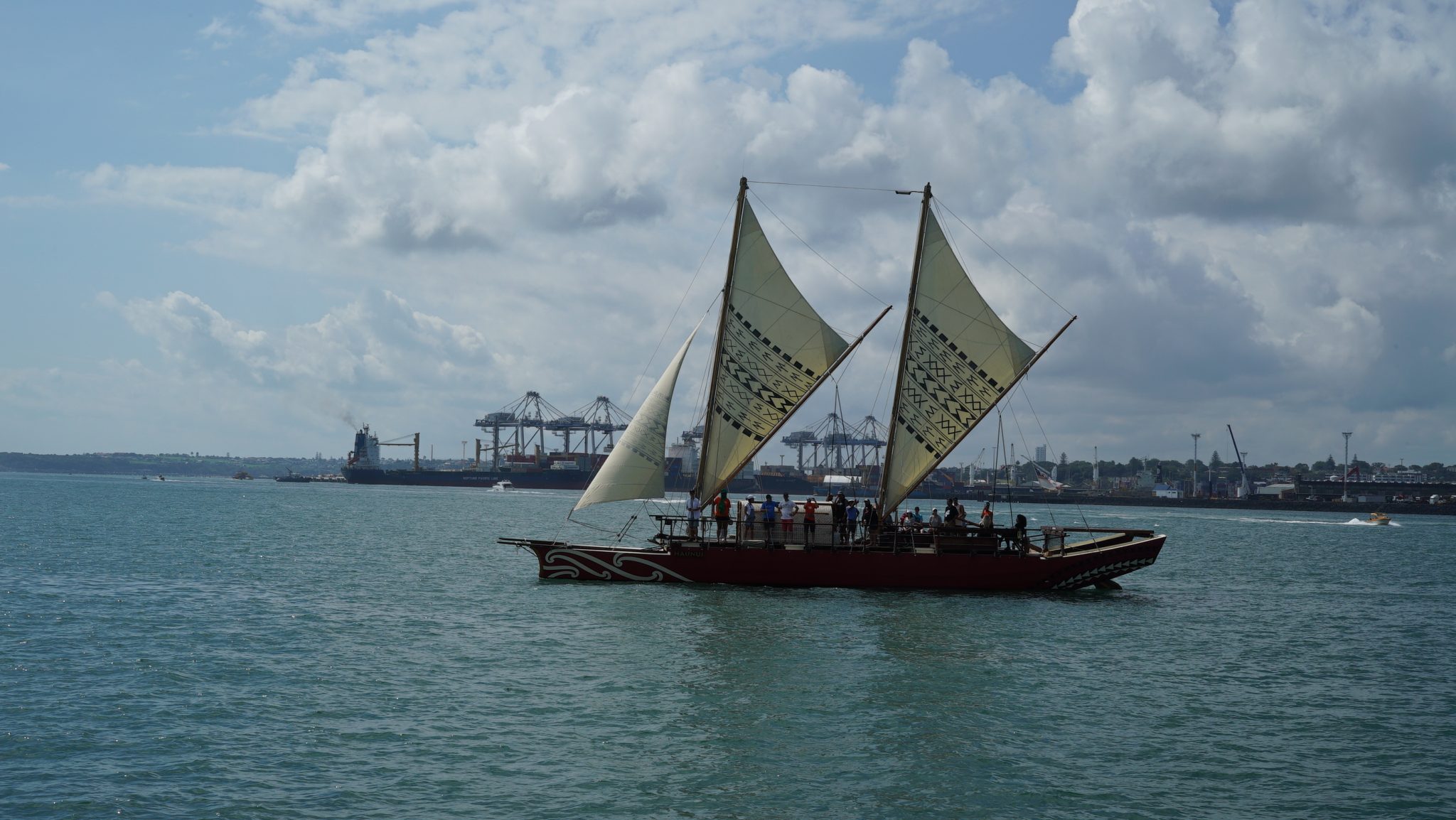
by Cazna | History and Legend, Our People
Auckland Anniversary weekend happens at the end of January every year. Every Friday afternoon around this time of year, the motorways are jam-packed with families scrambling out of Auckland to make the most of the long weekend.
It was on one such weekend that I discovered an interesting event called the Tamaki Herenga Waka Festival.
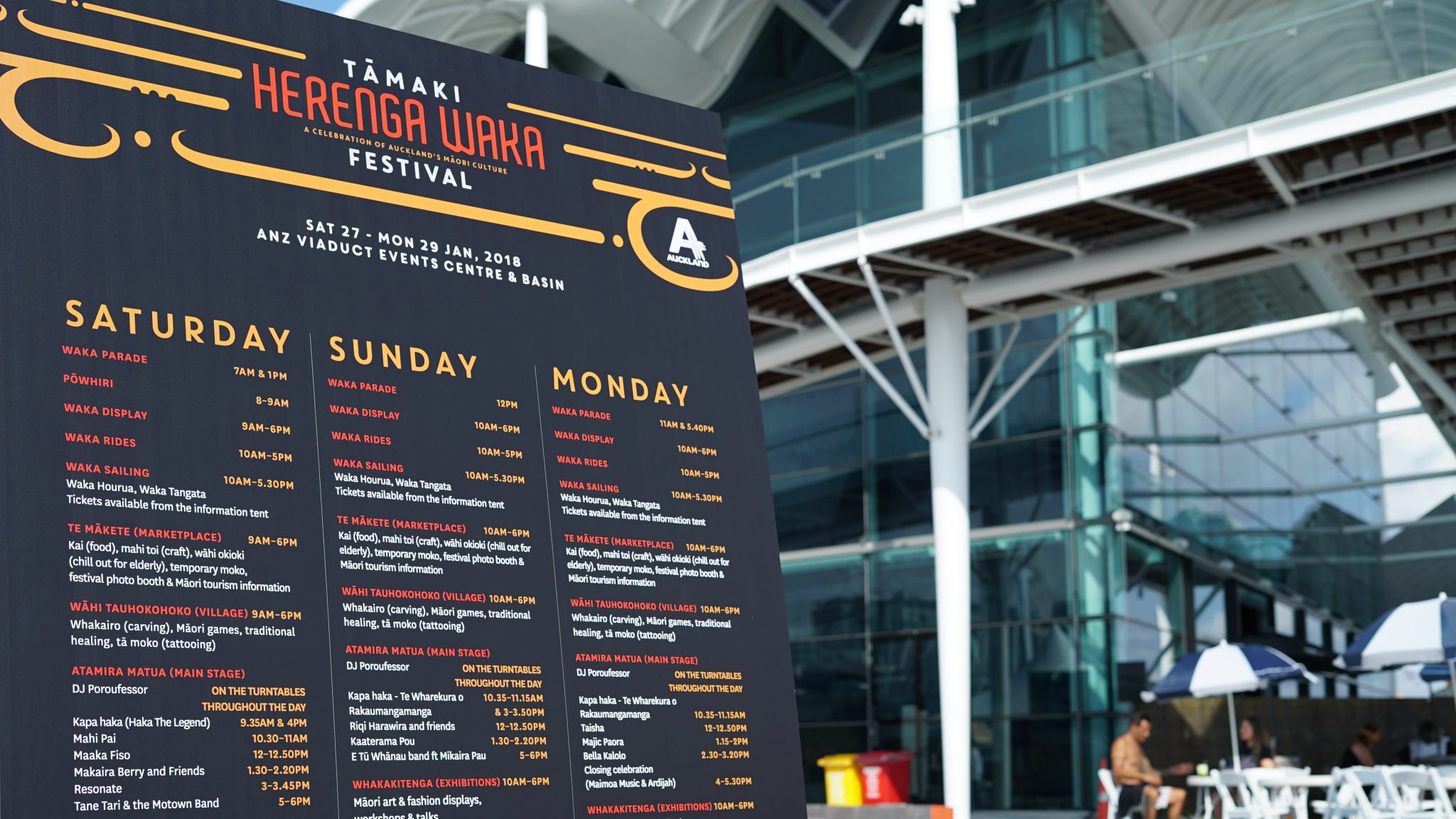
Waka are traditional boats/canoes used by ancestors of Maori and Polynesians to navigate the oceans. It is an art to create these ancient vessels – one that is dying with the digital world that we live in. In fact, one of my dad’s family Uncle Hec as we know him by – Hekenukumai Busby – is a waka legend and an authority on celestial navigation.
The Tamaki Herenga Waka Festival has Waka in the name so I assumed it was just a festival about waka. Fair enough assumption right? Well, I could not have been more wrong… Without any further ado, here are the top 5 takeaways from the 2018 Tamaki Herenga Festival.
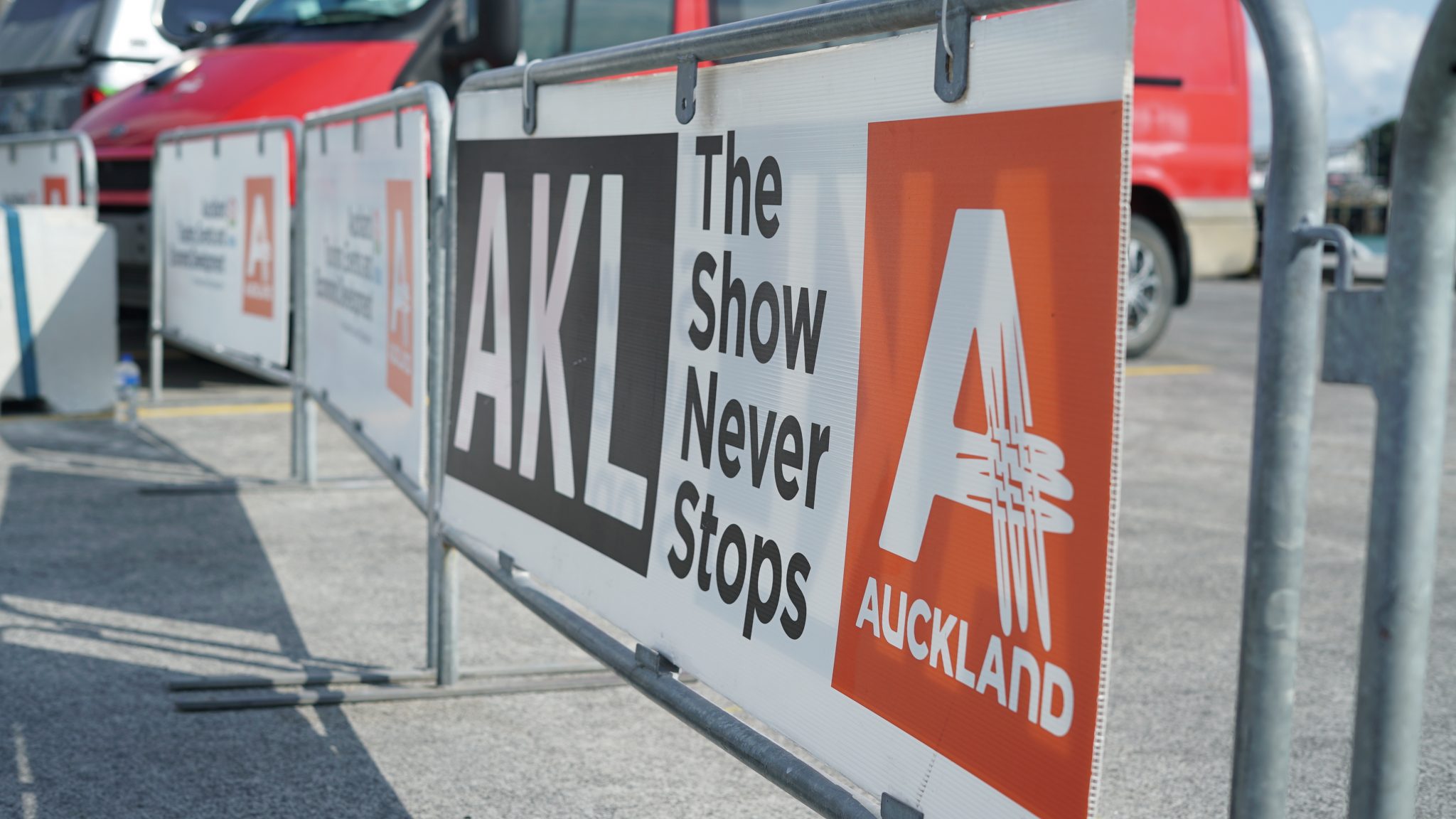
1. Powered by 19 Iwi and ATEED
Most impressively, this festival is the outcome of understanding and co-operation of 19 local iwi and the Auckland Council controlled organisation ATEED (Auckland Tourism, Events and Economic Development).
Not that I have ever had any direct dealings with iwi in the past but given the complicated history of Maori, this is no small feat. It was reiterated that nothing happens at this festival without the iwi knowing about. If this is true, colour me impressed.
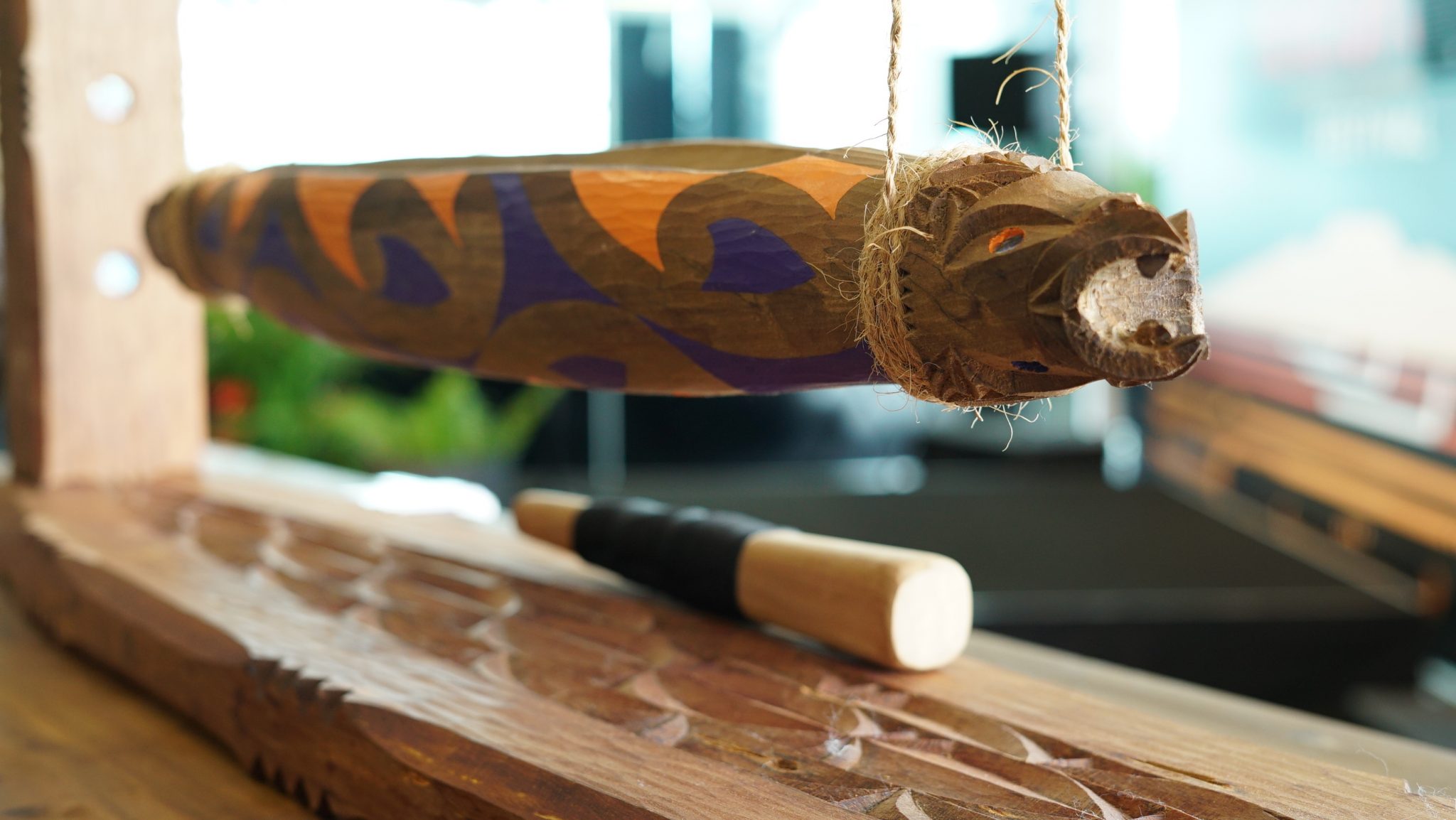
2. History
Unlike the other three festivals handled by ATEED (Lantern, Pasifika and Diwali), the Tamaki Herenga Waka Festival is the newest and smallest of the four festivals. It is only in its third year and runs every Auckland Anniversary weekend.
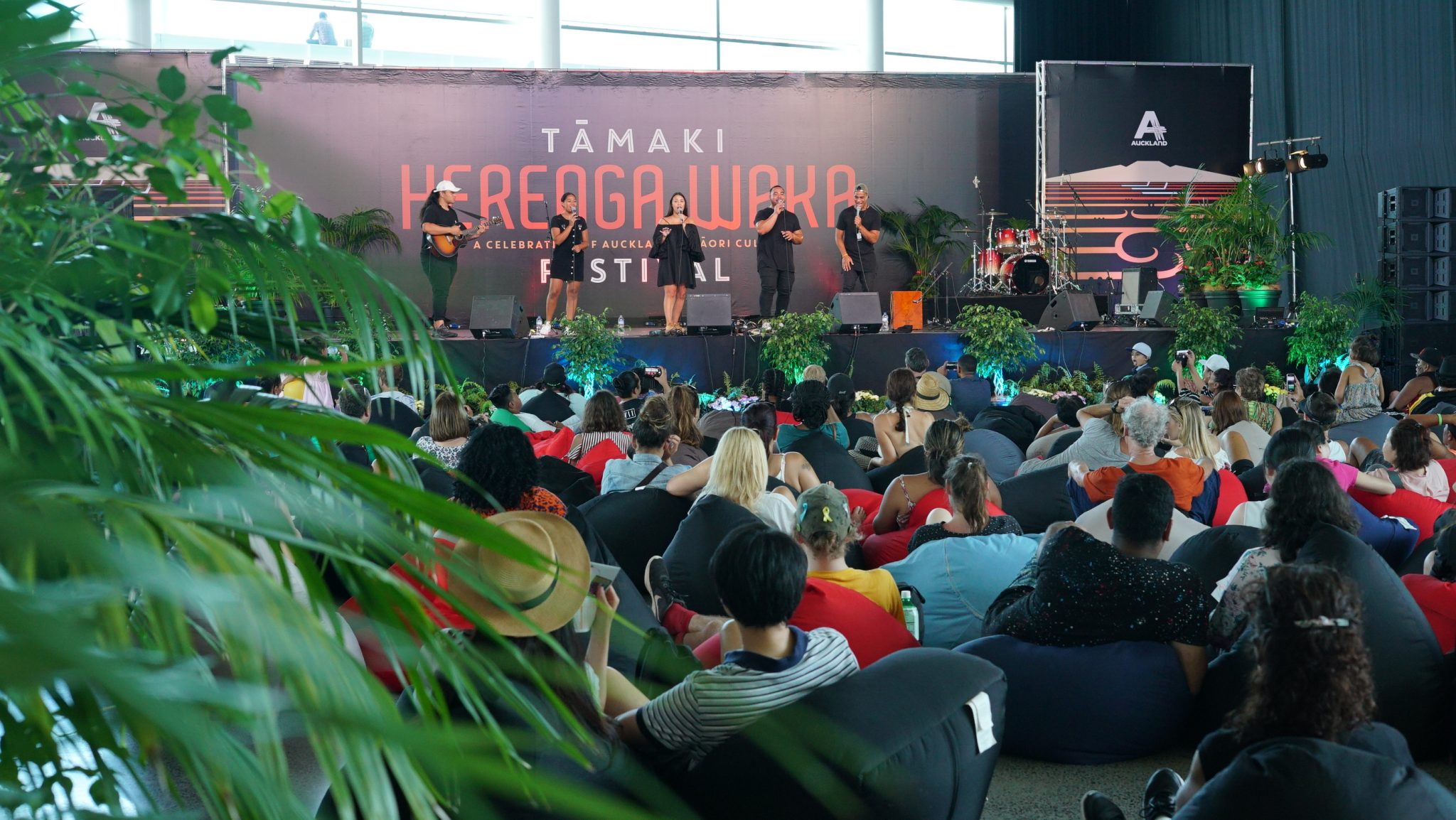
3. A doorway to Maori substance
One of the goals of the festival is to build the Maori events industry. The festival had many other types of stalls and events on display here. From the expected live performances and food stalls to the more hearty flax weaving, wood carving, tattoos and traditional Maori medicines. This festival was a great platform for Maori experts to come together and share with the world why Maori culture is here to stay.
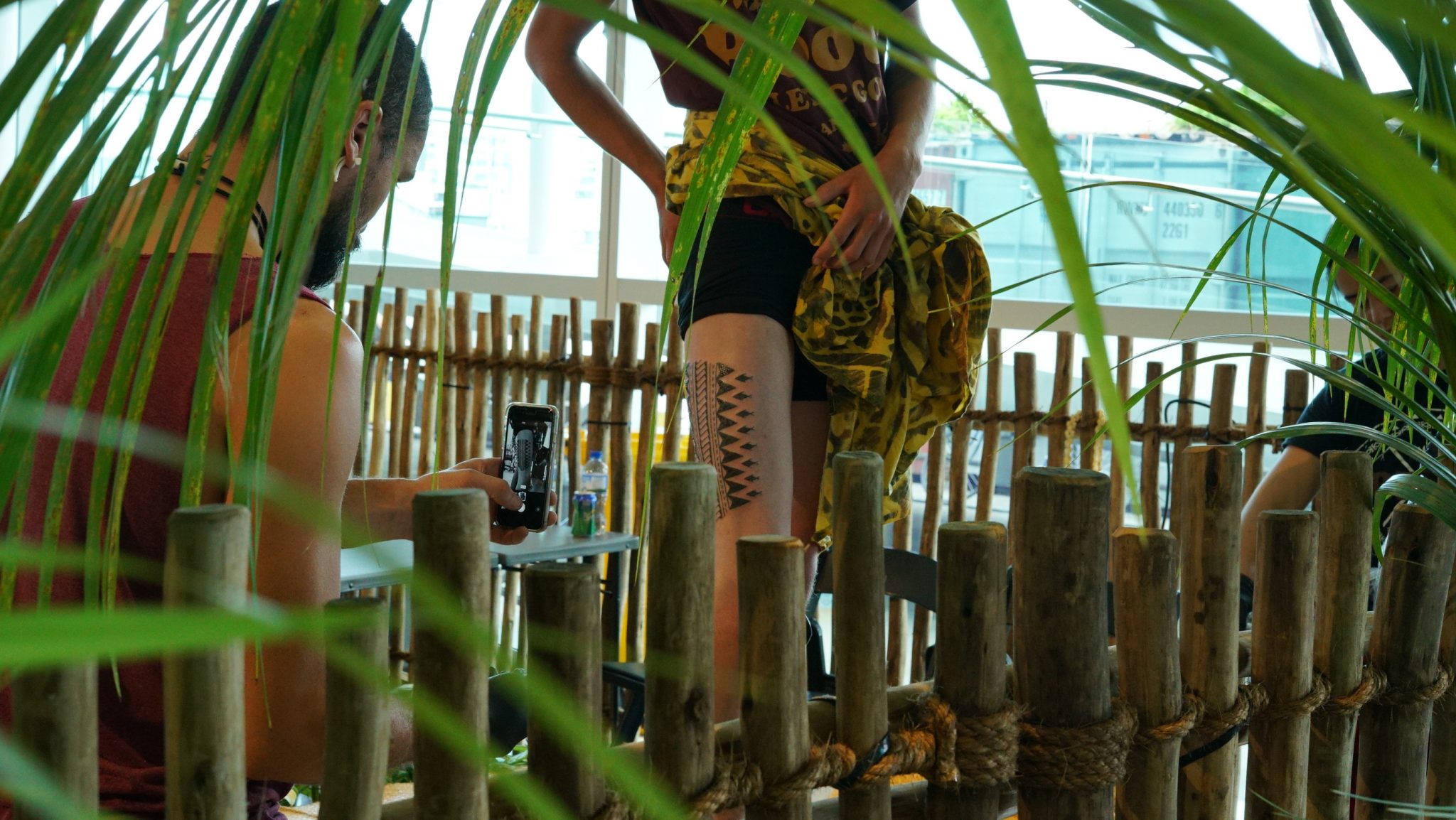
4. The tour on Aotearoa One (Waka Houroa)
The Aotearoa One toured around the harbour throughout the day. It was well staffed with a knowledgeable crew made up of passionate navigators that occupy and run the Aotearoa One. The staff all range in ages with the youngest member being 15 years old. It was great to see this organised crew sharing their knowledge of waka in New Zealand.
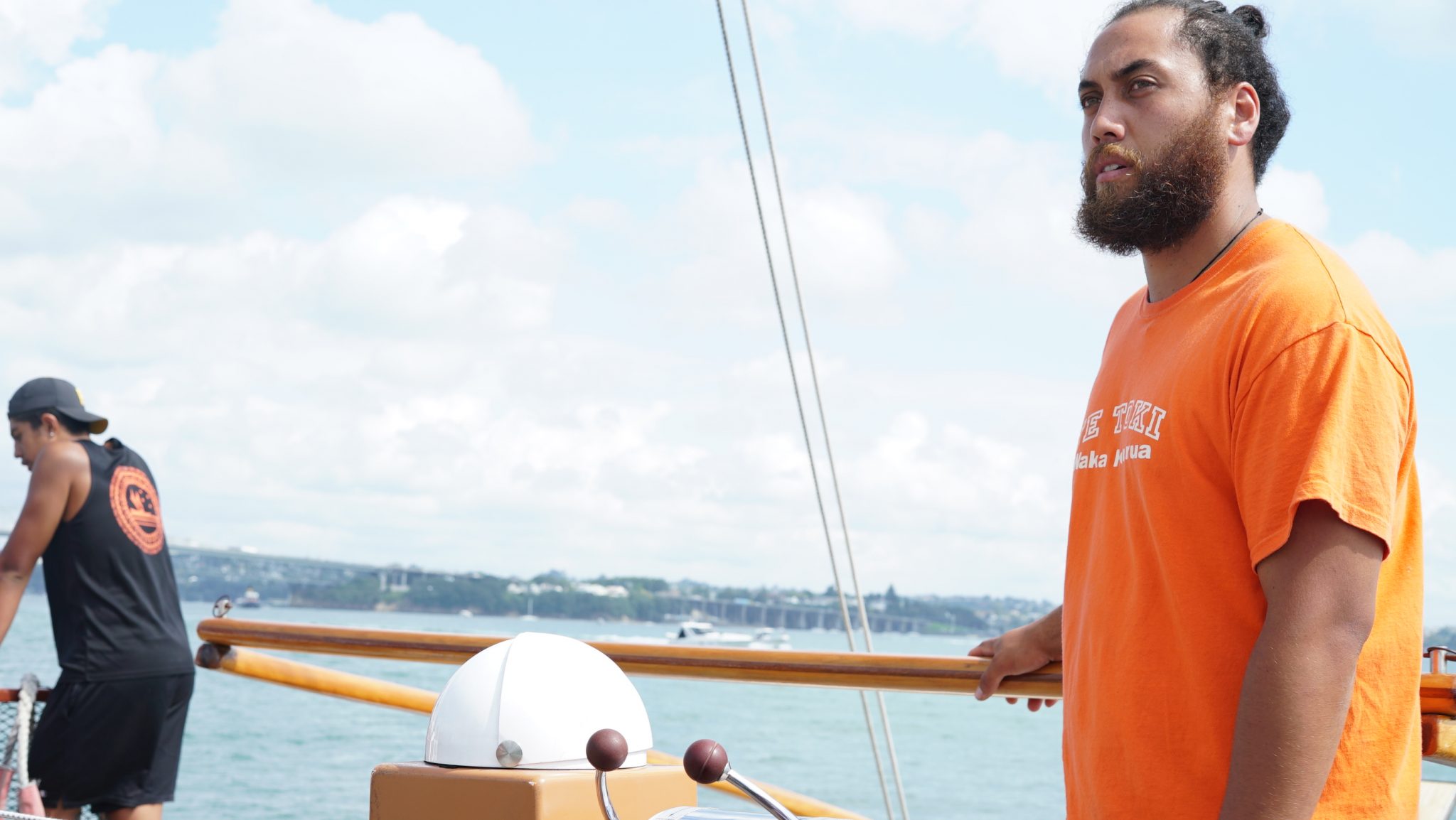
5. Part Waka, All Mana
Although it is named a Waka Festival, there were other aspects of Maori culture on display. And the festival was a great platform to showcase these. They had food stalls selling Hangi and craft stalls selling Maori inspired clothing. There was so much more on display than I expected. Very informative and interesting stalls were on display introducing newcomers and experts alike to engage with these often forgotten parts of Maori culture.
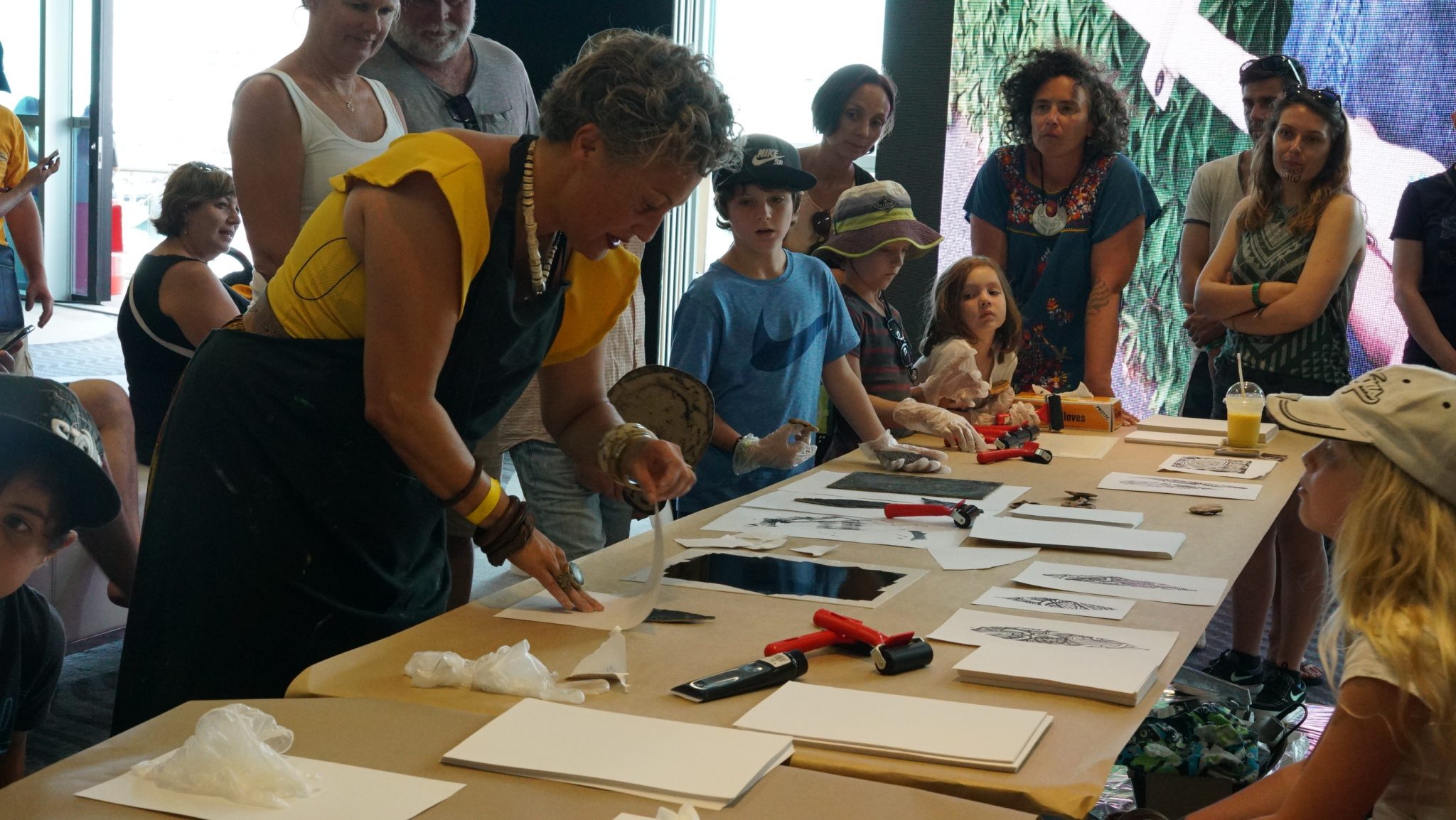
I was fortunate enough to get a behind the scenes look at how the festival was put together. It’s safe to say that bringing more interest to Maori culture through this festival is indeed a priority for ATEED. If you were at the Tamaki Herenga Waka Festival 2018, what was your favourite part of the festival and what do you think can be done to improve it?
Some of the waka from this festival will be making an appearance at the upcoming New Zealand Festival in Wellington on 23rd of February. Look out and say Hi to our Manaui team and we’ll see you there!
#Waka #Maori #Festival #Mana
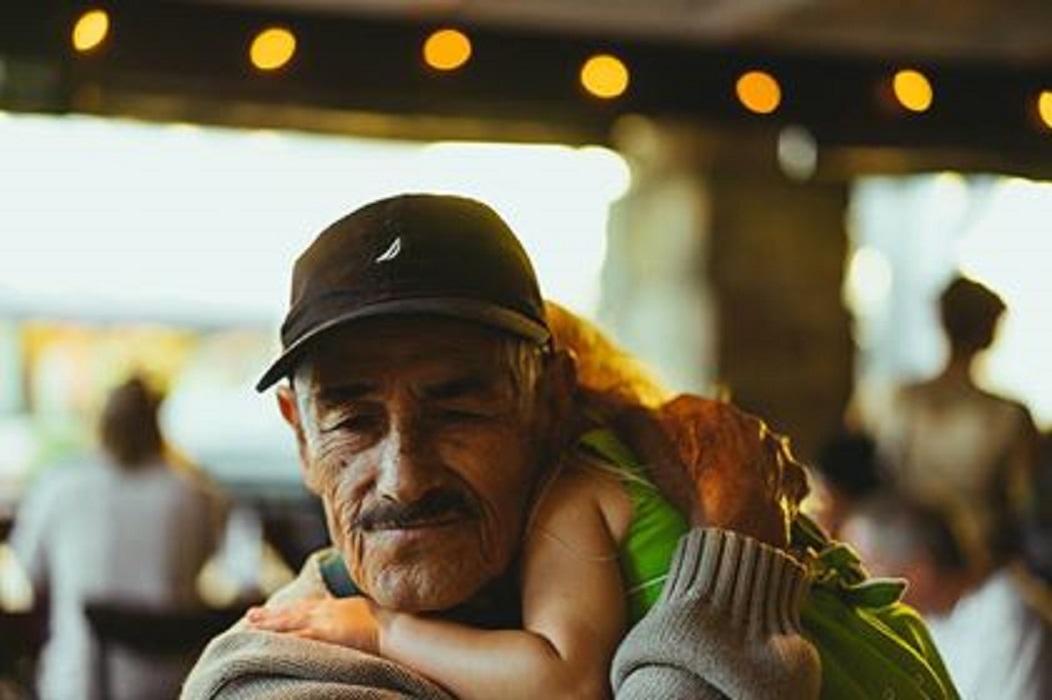
by Cazna | Essays, Our People
A little bit about me
I come from a pretty big family. I have 8 siblings however we weren’t all raised together. Only a few were raised by my parents, the others were raised by other family members. I was fortunate enough to be raised by my Nan & Pops; my mother’s parents. I’ve been with them since I was a baby, so I’ve always called them Mum & Dad and I called my parents by their names.
I was the only child with my grandparents, I remember my uncle living with us when I was little but he eventually moved out and it was a little lonely sometimes. So they would always take me out to the park, to the beach or to see family. I appreciated the time they would spend with me. But as I got older I came to really enjoy being on my own and having ‘me time’. It was time where I could just think about anything and everything. It was time to reflect. Time to unwind.
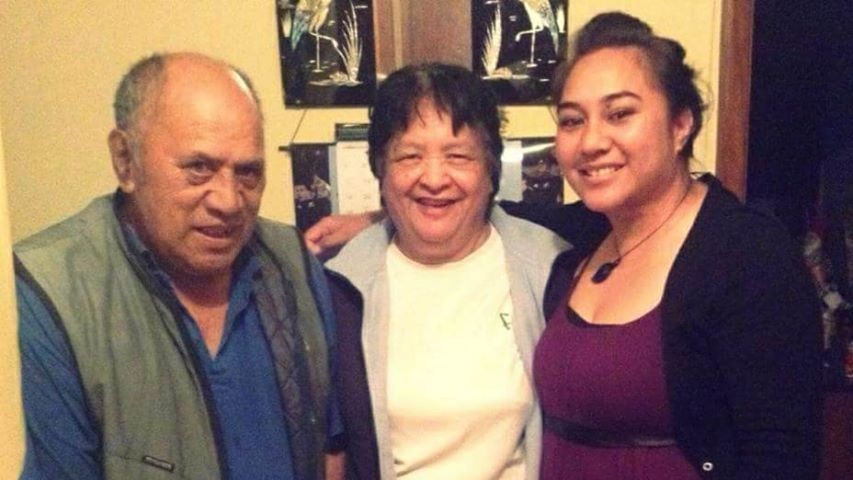
Raised the ‘old school’ way
Being the only child in the house, I was a quite spoilt haha. No, we weren’t rich nor were we dirt broke. We always seemed to have enough to get by. I only ever hung out with them and their generation. I never really hung out with family my age, mind you that’s cos all my cousins were either older or younger than me. Only had a couple of cousins around my age but then only saw them sometimes. But the places my grandparents took me, the things they taught me are things I only ever appreciated after I left home. At the time I thought I knew everything (as most kids/teenagers think) but everything makes sense now.
I’ve learnt a lot from my grandparents. The person I am today is thanks to them. Here are a few things they taught me.. I know the title says 3 but it’s kind of hard to pick just 3, so I’m going to put it into categories and list stuff under it. First topic is –
Whakapapa
Whakapapa is genealogy. Growing up I’ve always been told about how important it is to know your whakapapa. In my grandparents days genealogy was handed down verbally (so you had to have a pretty good memory) but in saying that, it was always repeated until it was embedded into their heads. I remember my Nan telling me of when she was a kid and she had to go with the kuia (elderly woman) and they would make her sit with them and would tell her all these stories and who is who going back as far as they could.
Back in the days, to keep track of whakapapa Maori would have it carved. Nowadays we are fortunate to have the internet and to be able to record our whakapapa digitally.
My personal opinion is that whakapapa doesn’t only mean knowing your genealogy, it’s also about knowing where you are from. Knowing about your land. Your family. Your ancestors and their history. Whether they were good or bad. We can’t change what our people did in the past however we have the power to make a difference for our whanau now.
Remember your whakapapa and if you don’t already know it, make it a goal to learn more about it. There are many sites which you can use to record it. I will list a few at the bottom of this article. If not ask your Nana or Koro before they pass.
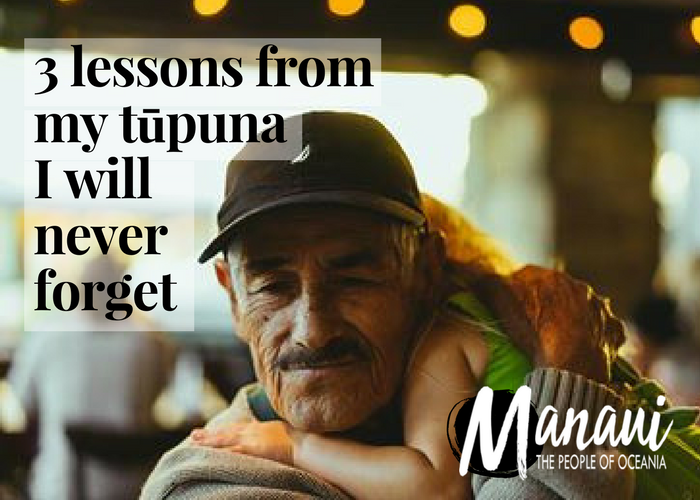
Koha
Next one is koha. Koha is a gift, it is normally something that you would give to someone in a time of need or when you feel the need to. For example traditionally when there is a tangihanga the manuhiri (visitor) would offer a koha to the family of the deceased, to help them with anything that is needed for the tangi; most of the time this covers the kai (food) which is served to those that come to visit the deceased. It is not compulsory but it is a sign of respect by doing so. When you koha, you give what you can and it is given without expecting anything in return. My grandparents always made sure they gave koha to whanau when there’s a tangi. Like I said earlier, we weren’t rich nor were we dirt broke. They would both chip in some money and give what they could. Koha doesn’t mean you just give money, food can also be a form of koha too.
I had an experience the other week. My husband, sister-in-law and I were waiting in line to get some food. I saw this old man and an old Maori lady with a walking stick nearby. I knew they wanted something, so I watched them but they took one look at the line and eventually walked away. Bear in mind that the line was long and it was a hot day. They came back not long after and was hanging around, I could see they wanted to get something but because the line was too long they weren’t keen. So I went up to them and asked if they wanted something and that I could get it for them, the old lady replied and said, ‘I just want a raw fish,’ signaling to the old man (which I assumed was her husband) to get her money. The raw fish was $4 and was in a tiny container (about a handful), wasn’t worth it to be honest. So I told them the price and how tiny it was. They were bummed and said never mind.
I went back in line and saw them sitting down, we were near the front of the line by then. I really wanted to get a raw fish for them. I asked my husband what he thought and he said ‘if there’s any left we’ll grab it’. When we got to the front we asked if there were any left and there was only 1 left. So we got it and I took it over to the kuia and gave her the raw fish. She was thankful and was about to give me some money and I told her that it was OK and that it was a koha. Her face was filled with gratitude. It felt good to do good and give back, especially to our old people.
Koha is a beautiful thing because it reminds us to be more giving which can be quite humbling. Which leads me to the next thing I was taught –
Manners
This will cover a few things. Some may not seem right under this heading but I think it fits when you really think about it. This is done in no particular order.
First one, respecting and looking after our elderly. Remember they’re older and some of them will have aching bones, so they can’t stand as long as we can. Give up your seat if need be, offer them a hand if they’re carrying shopping. Some older people still act like they’re young and think they can do everything. Truth is, some of them can’t do some of the stuff they could do when they were younger, but they’ll try. Help them out where possible, but don’t force the help if they don’t want it. Sometimes that is their motivation to keep them going and it keeps them active. Always remember your elders, but especially your grandparents; you wouldn’t be here if it wasn’t for them (for you cheeky readers. Yes I know you came from your parents but where did your parents come from? Exactly). So go see them every now and then. See if they need help with anything and sometimes it can be lonely for them. They won’t admit it but a simple visit can brighten their day.
Second – removing your shoes before entering someone’s home. As a kid I was taught to always take my shoes off when you enter into someone’s home. Removing your shoes is not only a sign of respect to the owner of the home but also to the house itself. By removing your shoes you leave any dirt and anything you carry with you outside. It’s similar to a marae. You don’t wear your shoes in a marae, it’s to respect the wharenui and the ancestors from there. I’ve been to a few places where they tell me to leave my shoes on, but I always feel uncomfortable so I remove them anyway. If you’re worried about having toe jams just make sure to wash your feet, wear clean socks or wear a pair of shoes you know doesn’t make your feet smell. Just a tip.. use baby powder 😉
Lastly, always wash your hands when you leave the urupa (cemetery). Ever wondered why there’s a bottle of water near the entrance of a cemetery or why there’s taps around? Yeah, most times it’s to clean up your loved ones but it’s also to wash your hands as you leave. Now this is a cultural thing and I understand other cultures don’t do this but this is what we do. By washing your hands you leave whatever you have with you there and also so that no spirits go with you as you leave. The water also acts as a protection for yourself as you leave the urupa.
I could go on forever talking about all the things my olds taught me, but these are just a few things they taught me which have stuck with me and I feel these are some things that could either help someone today or remind them. I hope this has helped you in some way and please don’t take some things as protocol cos these are the things that we do, but if you could respect it, that’ll be appreciated.
—
Some genealogy websites for you to check out:
http://www.familysearch.org/
http://www.myheritage.com/
http://www.ancestry.com.au/
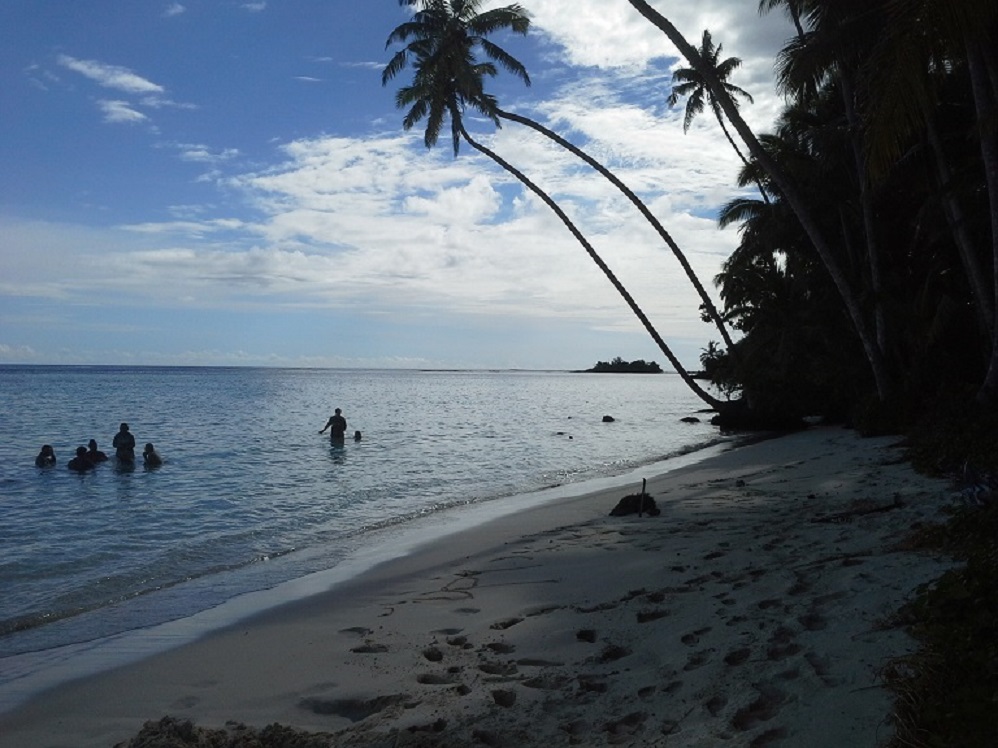
by Cazna | Travel Oceania
I’d be lying if I said I had always wanted to go to Samoa. As a second generation immigrant, life in New Zealand and all it’s comforts (first world problems) were all I had ever known.
My only connection to my Samoan roots were through my grandmother Vae and grandfather Pili.

They had always wanted me to go to Samoa and learn more about my heritage. But like most spoilt kids these days, my response often consisted of loud sigh and an empty promise.
Years passed and eventually both my grandparents passed away…When life got tough, I would find their words stirring within me. I never knew why. And I was too stubborn to care.
Even more time has passed but now my outlook on life has changed. I have mellowed out (a little bit) enough for me to humble myself and learn. And with culture being a central part of my work life, I am in a position to go out and rediscover myself in a way I’ve never done before.
Despite my fear, shame and embarrassment of not knowing anything about my Samoan roots, I made a goal to go in 2018 and track down my ancestors. This will in some ways serve as a reminder of my commitment to do this and not to chicken out for unknown (made up) reasons.
Samoa is one of the most popular holiday hotspots in the Pacific. Below are some of the reasons why the thought of going there scares me. Hint: Refer to first world problems.
My nana and grandpa would slap me over the head for waiting this long and still not knowing as much as I should about Samoa. While it’s true I could google some of these things, I wanted to offer a snapshot into my naivety and fears as they are today. I’m not proud of them but they’re true and I want you to know that I am trying and learning.
I will be revisiting each of these after my trip so you can see how different Samoa is in my head compared to the reality.
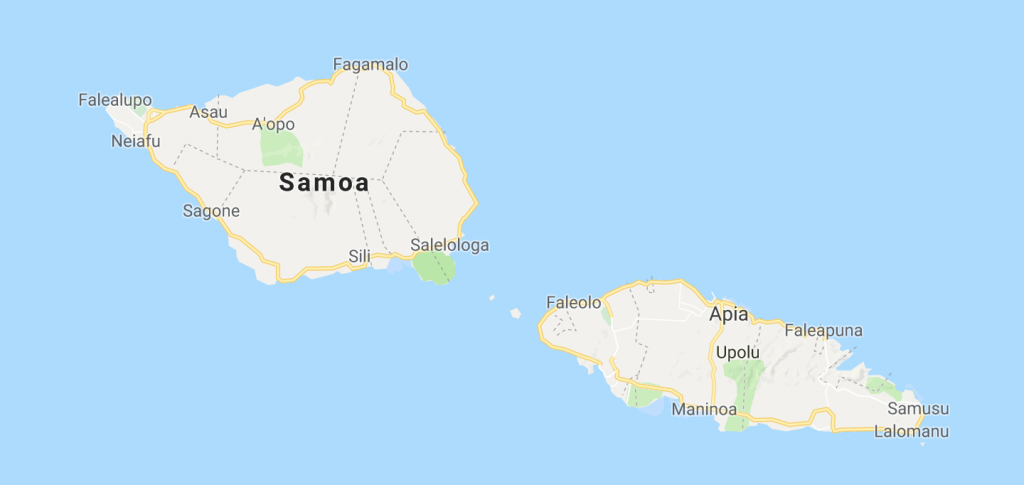
1. Weather
I spent Christmas in Auckland in 2017. The weather was unbearable for me… I just checked the weather for that week and it averaged 21 degrees. That can’t be right can it!? Otherwise, I’ll turn into a human raisin as soon as I step off the plane.
Is the heat dry or humid? And when is the coolest time to travel to Samoa? And how much sunscreen should one take if you’re planning to be there for 2 weeks?
[rara_spacing spacing_height=”2px”]
2. Etiquette
The extent of my Samoan etiquette was when I lived with my grandparents as a child. This included making tea for guests, crouching low and saying ‘tolou’ when walking past people (this was my best guess at spelling the word but it sounds like ‘too low’ – you know what I mean!), saying ‘talofa’ when greeting people and ‘fa!’ when saying goodbye.
What are some of the major do’s and don’ts when dealing with the Samoan people?
[rara_spacing spacing_height=”2px”]
3. Transport
The map of Samoa looks small enough for me to walk the island…but then so does New ZeaIand (compared to the rest of the world) and that is definitely not walking distance. The thought of travelling between islands is exciting although I’ve never been on a boat long enough to know if I get seasick.
What is the best to travel around and between the islands of Samoa?
[rara_spacing spacing_height=”2px”]
4. Food/Drink
I have always proclaimed that my number one reason to travel is to taste the food of other cultures. Although I’m familiar with some versions of Samoan food (shout out to Otara) but I’m excited to try actual Samoan food in Samoa.
Any recommendations on foods to try that we don’t have or have but are not as good as in Samoa? What is the ‘Marmite’ of Samoan foods that I absolutely have to try?
I’ve always taken tap water for granted (we all do) but the thought of going without it scares me somewhat.
Is water freely and readily available by tap? Or is it best to buy bottled water over there? Can you drink from fresh water streams?
[rara_spacing spacing_height=”2px”]
5. Sleeping
As someone who suffers from sleep apnea, I don’t often sleep away from home or at friends places.
Do people live in regular houses or is it under a roof in an open marae-style? (I can’t think of any other way to describe what I am picturing in my head – Sorry!)
Additional Side Question: Are the power sockets there the same as in NZ?
[rara_spacing spacing_height=”2px”]
6. Toilets/Bathrooms
I hate camping because if there is not a seat to sit on and toilet paper, I’m drowning myself in the nearest pool of (clean) water. This point proves just how first world my life and problems are.
Please tell me there are flush toilets and toilet paper…Even if there isn’t I need to convince myself to still follow through with this, so lies will be accepted for this point.
[rara_spacing spacing_height=”2px”]
7. Dangers
Tourists are typically oblivious to these but locals and people familiar with Samoa will know what to look out for. Any wildlife, people, phrases etc I need to be aware of so I don’t get hurt or beaten up over there?
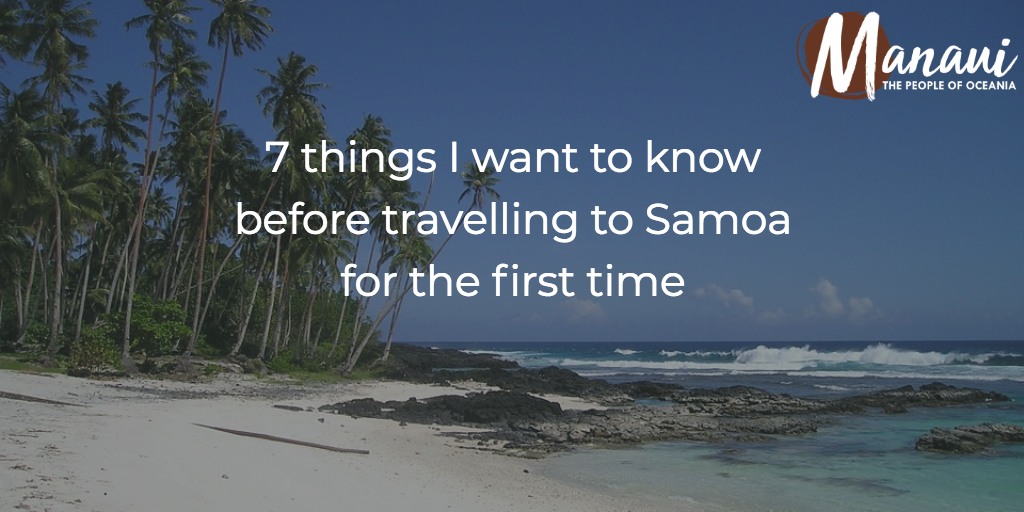
So… what now?
…This is where you come in!
I am reaching out to you as a reader. I want to hear about your experiences!
Please comment any insights and suggestions below or via our various social media channels using the hashtag #beforesamoa. I will be recording my thoughts and experiences while I am in Samoa for the follow up post #aftersamoa.



























Recent Comments